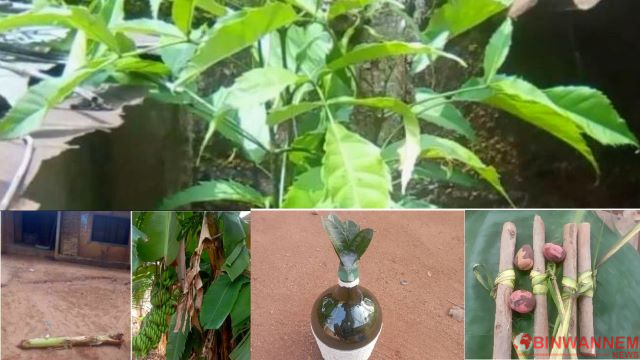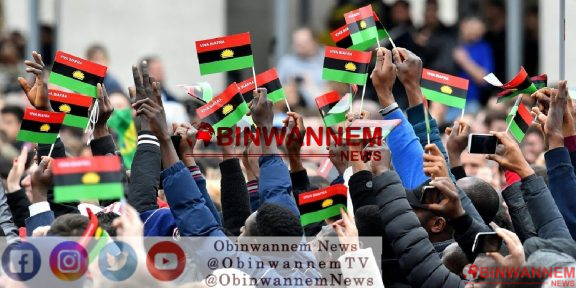1. Carrying a cage of Palm wine covered with ube (pear leaf) to your in-laws signifies divorce in Igbo culture. This act symbolizes the severing of marital ties and is a formal way of announcing the end of a marriage within the community.

2. Plantain or banana holds a special significance in Igbo culture. When a log of a plantain or banana tree is cut down and placed at the entrance of a compound, it indicates the birth of a child in that household. Additionally, in cases where a person’s corpse is not found, a plantain tree may be cut and buried in place of the body as a symbolic gesture. Women also use plantain trees for ululation during certain events.

3. Palm fronds (omu nkwụ) are versatile symbols in Igbo culture, often signifying danger or the imposition of serious sanctions. When placed somewhere, they indicate a restricted or prohibited area where entry is forbidden.

4. An Ogirisi tree tied with omu and accompanied by seven kola nuts represents a serious appeal (mkpesa kàrà àkà) in Igbo culture. This act signifies a formal request or plea for assistance or intervention in a significant matter.

5. “Ịtụ nzu m’obu edo” (powder) signifies purity and prayer in Igbo culture. It is used ceremonially to purify individuals and spaces, and it often accompanies prayer rituals as a symbol of spiritual cleanliness.
6. The bitter kola, known as “Aki ịlụ” in Igbo, plays a role in traditional customs related to marriage. If you visit your intended bride’s family and are presented with bitter kola, it symbolizes a warning not to proceed with the marriage plans, suggesting that marrying into that family may not be favourable or harmonious.

















